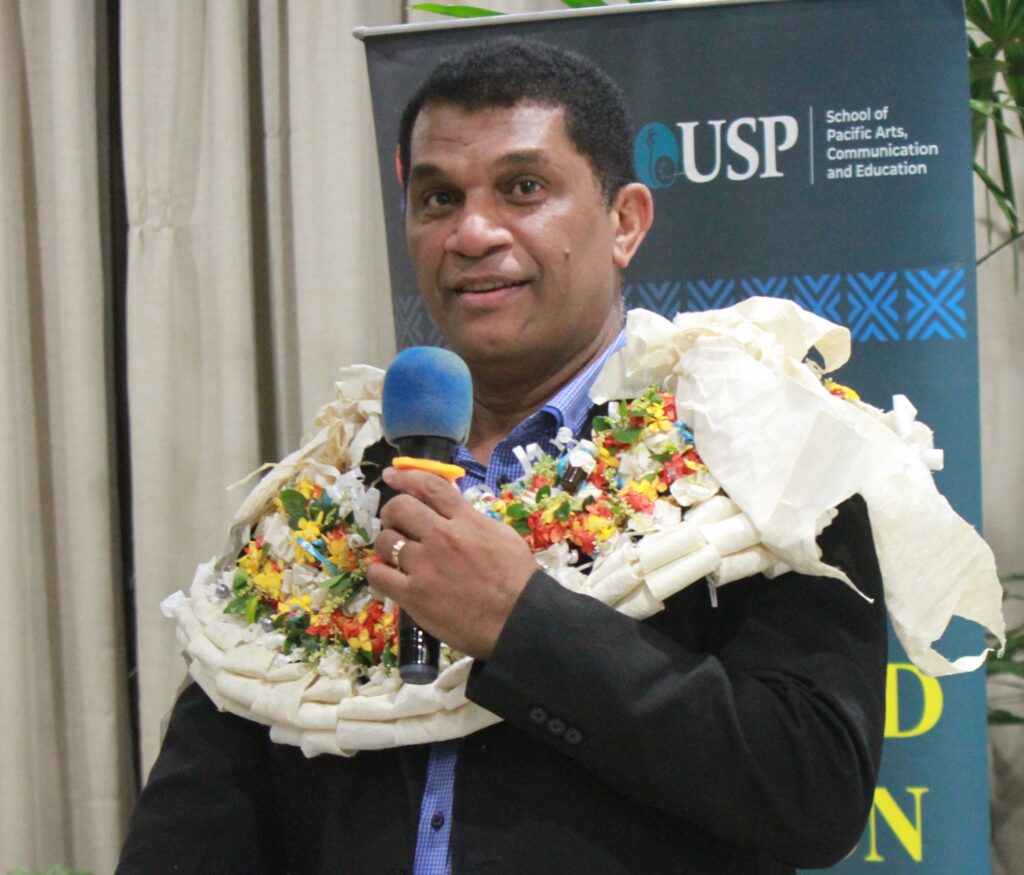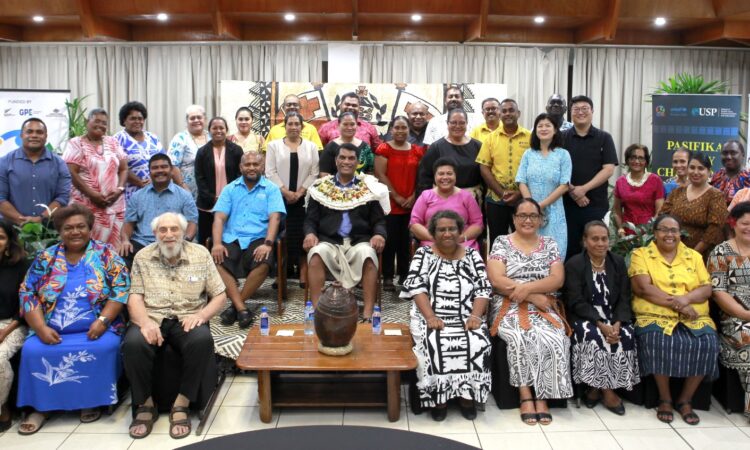Veitalanoa Yaga kei na Veiwasei – A sharing and learning space
In a first for the region, government officials and higher education service providers from 15 Pacific Island countries convened in Fiji to discuss and strengthen the provision of pre- and in-service professional development for early childhood educators.
The four-day symposium was held in Nadi on 28-31 October 2024. Led by The University of the South Pacific (USP), the event consisted of representatives from teacher training institutions (TTI) across the region such as Fulton College, Fiji National University, Corpus Christi Teachers’ College, and College of The Marshall Islands.

The Minister of Education of Fiji, Honourable Aseri Radrodro officially opened the regional symposium. “This ‘veitalanoa’ platform should ensure that the Pacific Early Childhood Education Teacher Competency Framework is relevant as we invest in professional development advocating for regular training programmes, workshops, and mentorship opportunities in both pre-service and continuous professional development. It should also promote collaboration with local communities, engaging families and communities in the educational process, ensuring cultural relevance,” the Honourable Minister said.
Dr Rosiana Lagi from the School of Pacific Arts, Communication and Education at USP explained that ‘the veitalanoa provided space for the solesolevaki collaboration of regional countries, teacher training institutions and ECE educational stakeholders. This would strengthen the Early Childhood sector through its programmes, policies and activities for the better implementation of the regional ECE teacher competency framework and consequently the shaping of the quality of teachers and children we nurture and educate with the agenda of building a sustainable and resilient Blue Pacific’.
Under the auspices of the Pacific Regional Education Framework (PacREF), there was a commitment of partners to address quality in ECE teacher education, building on the Pacific Early Childhood Care and Education Teacher Competency Framework. USP hosts the PacREF Facilitating Unit.
In 2018, UNESCO, in collaboration with UNICEF, USP and the Pacific Regional Council for Early Childhood Care and Education (PRC4ECCE), representing the Ministries of Education from the 15 Pacific Island Countries, developed this Framework, https://unesdoc.unesco.org/ark:/48223/pf0000266089 where the role of early childhood educators was highlighted in fulfilling development goals – particularly Sustainable Development Goal (SDG) 4.2; Quality Education for the youngest citizens.
The Framework defines core and enabling competencies for early childhood teachers to secure the best education and care for young children. It contributes to ensuring that all young children in the Pacific have the opportunity to reach their full potential and create a positive future for themselves, their nation and the region.
PacREF focal point, from the Ministry of Education, Palau, Director Ray Mechol iterates,
‘Noting that investments in ECE bring a significant return in later education levels, this regional ECE Symposium has provided a safe space for Pacific Island Countries, TTI’s and regional development partners to share ideas and viewpoints on how they see ECE moving forward in the region’.
“The in-depth discussions on the Regional ECE Teacher Competency Framework provided more clarity on the types of support needed for ensuring that teachers are well-prepared to teach in ECE classrooms. Our gratitude goes to USP & UNICEF for this partnership in creating this ECE Veitalanoa Symposium,” Mechol said.
Now, six years later, under the support of PacREF, Pacific Island countries have come together, convened by USP and with support from UNICEF and other regional partners to take stock of the progress in implementing the Framework in early childhood teacher training and continuing professional development.
The Pacific Island countries represented at the symposium included the Cook Islands, Fiji, Kiribati, Nauru, Palau, the Republic of Marshall Islands, Solomon Islands, Tonga, Tuvalu and Vanuatu.
The Symposium was initiated by USP, with contributions from UNICEF, and funding through the PacREF pooled funding for Pacific regional education efforts.

